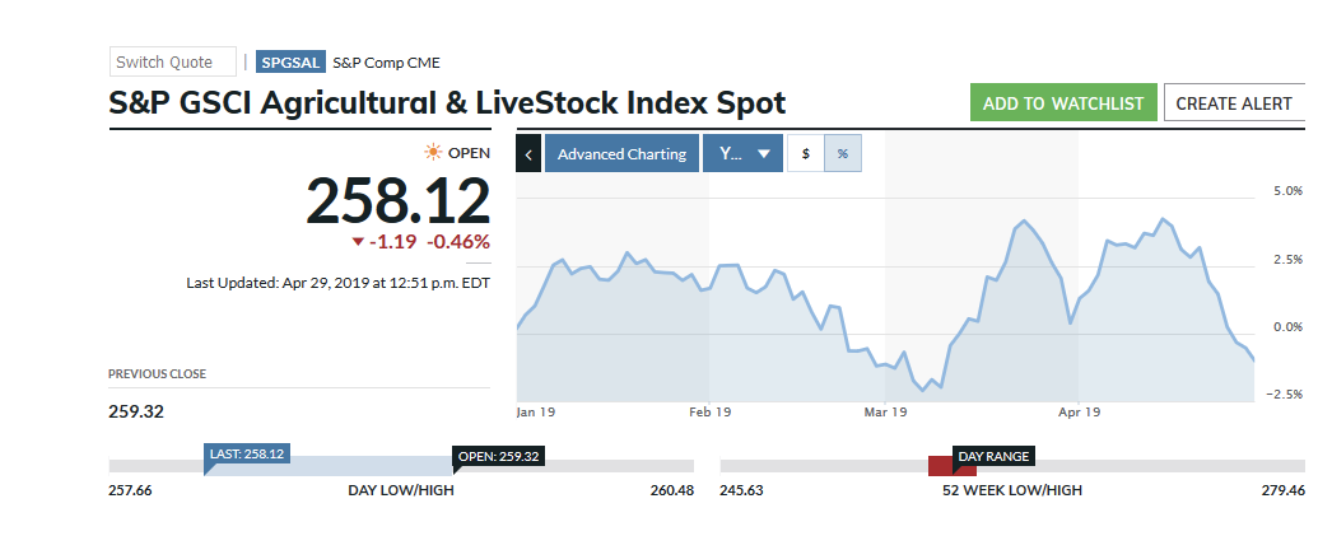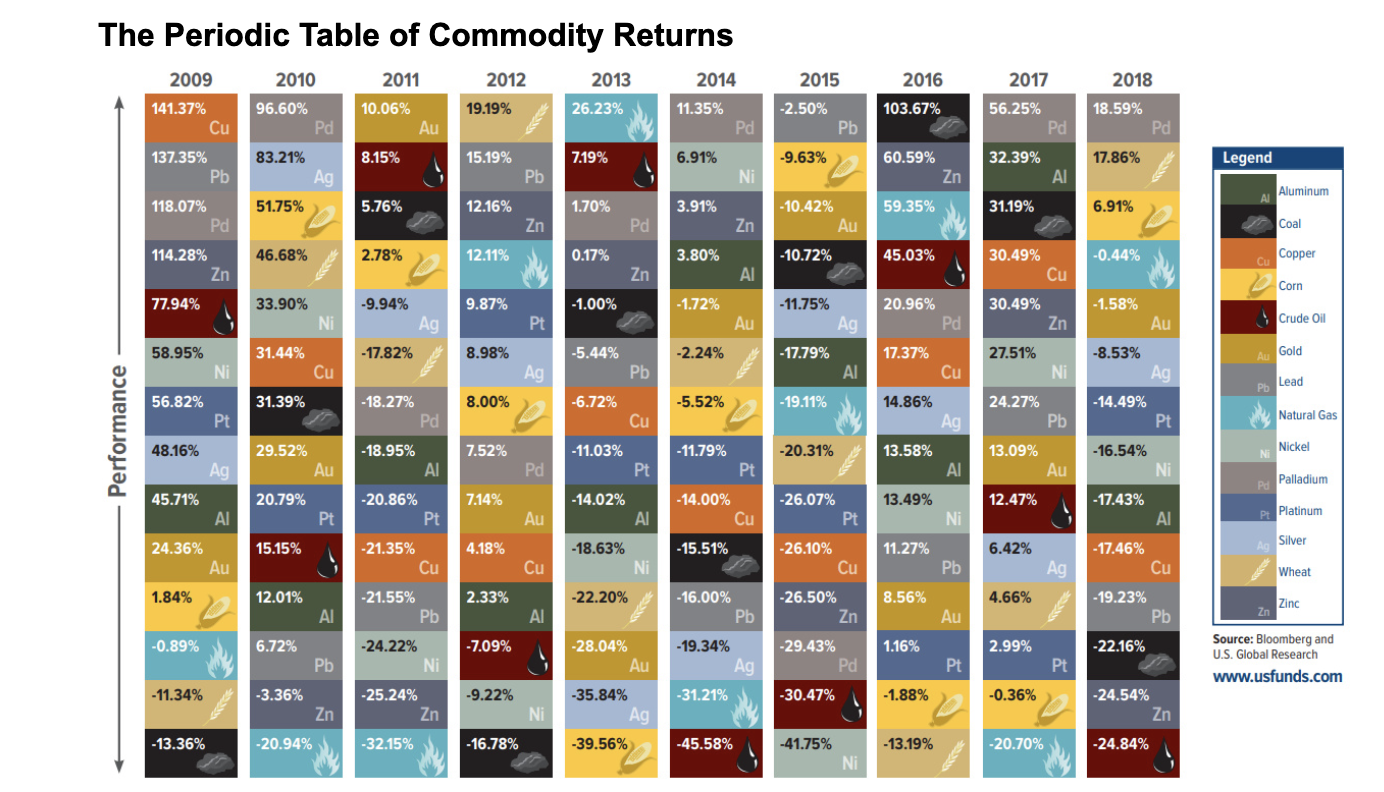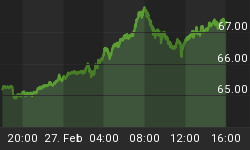Commodities may be hot, but increasingly they’re too hot to handle.
Coming into 2019, many pundits were bullish about commodities, citing market risks such as trade wars and a long overdue cyclical upturn for an underperforming asset class—and so far they’ve been proven right.
Commodities have been hot property this year, racking up the best returns and even outperforming equities during a banner first quarter.
The physical commodity demand has been fairly stable, with Chinese steel demand flat, copper demand defying expectations of a five percent contraction to grow at two percent and oil demand growth coming in better than the consensus at 1.4 million b/d yoy.
But a leading investment banker now says to tear up that playbook.
Just four months into the year, Goldman Sachs has suddenly done a U-turn and recanted all 10 of its commodity recommendations it had dished out in December, blaming “misplaced macro risk”.
The banker says the sudden disappearance of macro risk including the Fed’s sudden dovish tilt as well as a détente in the U.S.-China trade war have shuffled the deck and muddied the commodity thesis significantly to warrant a complete reset.
Trade talks between the two protagonists appear to be nearing an endgame with U.S. negotiators headed to China on Tuesday to try and hammer out details of a truce including an enforcement mechanism. Both sides say they’ve made progress on key issues such forced technology transfer and intellectual property. A final date for a deal - if there’s one - remains unclear though.
Changing landscape
Goldman says the shifting landscape now means that micro and individual events such as cyclones and the Vale dam break earlier this year will be the key drivers of the commodity market going forward. The expert gives the 50 percent rise on lean hog prices this spring as an “idiosyncratic event’’ that was missed by all momentum strategists.
Related: SEC Releases New Token Sale Guidelines
So what plays is the banker recommending for investors now?
Well, more commodities, but with a different slant.
Goldman says to go long S&P’s GSCI Agriculture & Livestock Index, which it sees benefits from a trade war truce between Washington and Beijing.
The analyst says to long gold and short silver noting the latter’s tendency to outperform the yellow metal when recession fears reach fever pitch.

(Click to enlarge)
Source: MarketWatch
Other recommendations include:
- Long copper and short zinc on supply dynamics
- Long LME aluminum but short SHFE aluminum on growing price divergence
The analyst is not too optimistic about oil prospects, saying the sudden end of U.S. sanction waivers on Iran is likely to be offset by higher OPEC and Russian production.
Contrarian play

(Click to enlarge)
Source: Visual Capitalist
For contrarian investors though, there’s still a bull case to be made for commodities. Scott Minerd, asset manager at Guggenheim, says the belief that the Fed is done with rate hikes has been lulling investors into a false sense of security.
Minerd, whose firm manages $265 billion in assets, says that view is plainly wrong since the latest data shows the U.S. economy is doing just fine, while China’s growth is also back on track. The U.S. economy grew at 3.2 percent annualized in the first quarter, its best start to the year since 2015.
Related: The World Of Apple Just Got A Lot Bigger
A couple more quarters like that and the Fed might seriously begin to reconsider its dovish stance. That’s great for commodity markets because rising rates tend to hurt stocks and bonds but not commodities which frequently outperform most asset classes during rate hike cycles.
Further, commodities have been out of favor for far too long leading to historical lows. The S&P GSCI Total Return Index, a popular commodity-based index, currently trades at roughly the same value as the S&P 500-stock index, compared to an 7x multiple a decade ago. This relative value metric means that commodities are now at close to a 50-year low and gives plenty of room for a nice catch-up rally.
Investors who would like to bet on commodities can buy the iShares S&P GSCI Commodity-Indexed Trust (GSG, $16.34) which gives you wide exposure to everything from precious metals and industrial metals to agricultural goods and livestock via futures contracts.
By Alex Kimani for SafeHaven.com
















